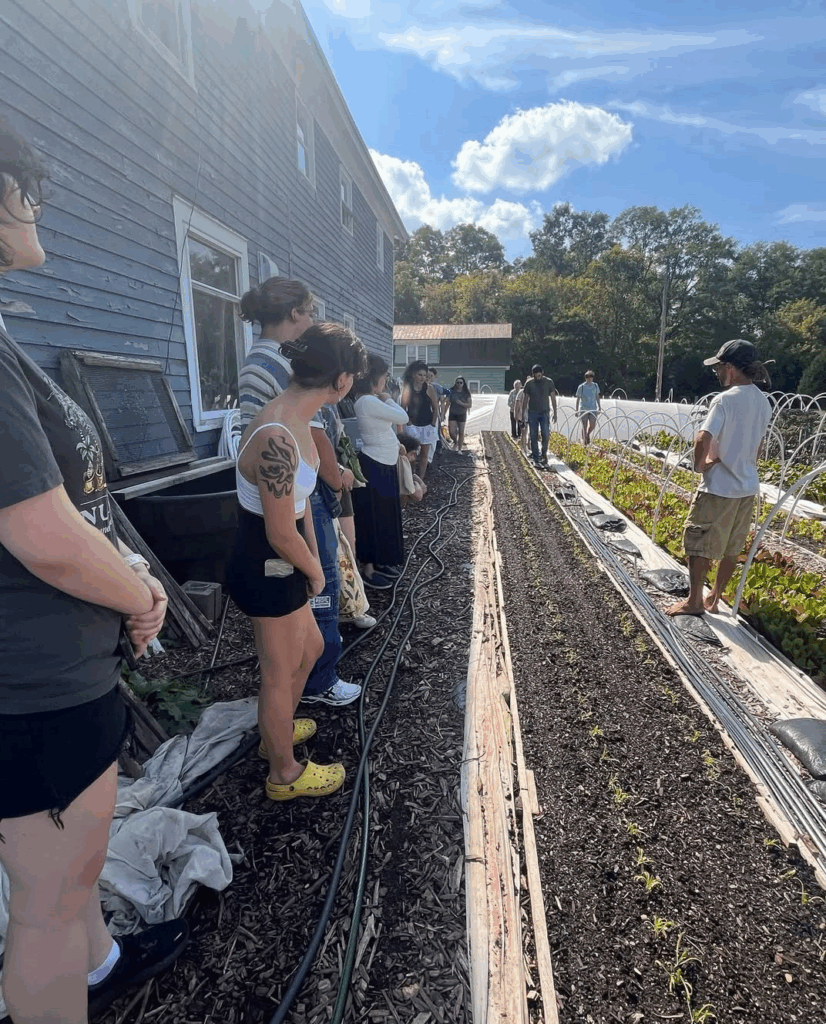GIULIANNA LALOMIO
Chief Copy Editor

Photo provided by Jordan Stephens.
In a powerful example of grassroots sustainability, SUNY Fredonia is advancing food justice and environmental stewardship.
The university has begun incorporating nutrient-dense, locally grown produce from Maggitti Farms into its campus dining services.
This initiative grew out of a collaboration between students, Fredonia Dining Services (led by Dean Messina) and Maggitti Farms, an urban regenerative farm just 0.2 miles from campus and the official garden sponsor of the student organization FredGrows.
Students at Cranston Marché will be able to enjoy farm-fresh produce grown using regenerative/organic practices, with a long-term goal of sourcing 30% of all food served across all the campus dining facilities from local partners.
“Early conversations with local farms helped us understand the potential for something bigger,” said President of FredGrows, Jordan Stephens. “[There will be changes in] not just growing food, but transforming how food is sourced and valued on campus.”
The collaboration with Maggitti Farms began before the current FredGrows leadership formally joined the organization. What started as a personal outreach for garden support quickly evolved into a deeper partnership grounded in shared values around sustainability, education and food access.
“I pulled into their driveway, not knowing what to expect. I walked up a path between two garden beds, was introduced to Wendell Maggitti, and instantly knew this was the connection we needed,” Stephens recalled. “Wendell, his family and their staff are incredibly genuine, passionate people. I can honestly say my life is better for having met them.”
Maggitti Farms stands out for its use of regenerative agricultural methods inspired by John Kempf and Dan Kittredge. These practices produce food with significantly higher nutrient density while actively restoring soil health and reducing environmental impact.
“Maggitti Farms is unique not only because of the methods they use, but because of how deeply they care about the community,” Stephens added. “They’re not just selling food — they’re donating to our on-campus food pantry, working with local organizations and building toward year-round production for students.”
Located just across from campus on Temple Street, the farm minimizes transportation emissions and aligns with SUNY’s 2025-2030 Climate and Sustainability Action Plan. Their contributions directly support campus goals to reduce single-use plastics, lower fossil fuel usage and increase access to local, pesticide-free food.
With greenhouse expansion already in motion, the vision of a campus dining program centered on fresh, local and ethically grown food is well underway.
This collaboration intends to increase student access to food and nutrients that may not otherwise be available. In turn, this creates the opportunity for seasonal menu changes in Cranston Marché, and utilization by our commissary, which supplies salads, sandwiches and baked goods to the cafés on campus. The farm is also donating a considerable portion to our on-campus food pantry, further decreasing food insecurity.
“This is just the beginning,” added Stephens. “We’re showing that with student energy, community partnerships and a willingness to reach out, real change is possible.”
